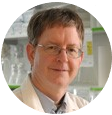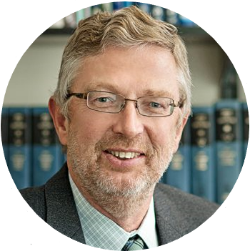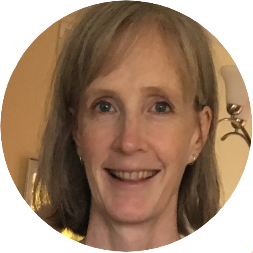Need Help?
25 August 2020
2nd Free Webinar on Biomolecules: Understanding the Potential of Host Defense Peptides in Treating Cancer—26 August 2020

MDPI has provided several free open platforms that may help accelerate scientific exchange and support academics during this particularly difficult period. Thanks to our brilliant technical support, we are pleased to report that the Second Free Webinar on Biomolecules: Understanding the Potential of Host Defense Peptides in Treating Cancer is coming soon.
Date & Time: 26 August 2020 10:00am (PT) | 2:00pm (ADT) | 7:00pm (CEST)
Duration: Maximum 2 hours
Webinar ID: 843 6975 2868
Register for Free Here: https://sciforum.net/conference/biomolecules-2
Webinar Chairs

Dr. Melanie R. Power Coombs
Department of Biology, Acadia University, Wolfville, Canada
Department of Pathology, Dalhousie University, Halifax, Canada
Dr. Melanie Coombs’s research interests include the investigation of the anti-cancer and immunomodulatory effects of natural products such as phytochemicals and anti-microbial peptides at the cellular and molecular level. A recent focus of hers has been to examine the anti-microbial peptide mastoparan from wasp venom, as well as its derivatives, to study the mechanisms of action of killing cancer cells as well as effects on immune cell function. Investigations will examine the potential of these as future anti-cancer or immunomodulatory treatments.

Prof. Dr. David W. Hoskin
Departments of Pathology, Microbiology and Immunology, and Surgery, Dalhousie University, Halifax, Canada
Dr. David Hoskin has found that a fragment of milk protein known as lactoferricin triggers the death of cancer cells obtained from a wide range of human malignancies, including breast, colon and ovarian tumors and various leukemias and lymphomas. Recent studies from the Hoskin laboratory have focused on the anticancer activity of pleurocidins. Dr. Hoskin is currently working on methods to deliver these anti-cancer peptides directly to cancer cells.
Special Invited:

Prof. Dr. Hans J. Vogel
Biochemistry Research Group, Department of Biological Sciences, University of Calgary, Calgary, Alberta, Canada
Dr. Vogel completed his original academic training at the University of Groningen in the Netherlands, which was followed by a PhD degree from the University of Alberta in Edmonton, Canada. After a postdoctoral fellowship at the University of Lund, Sweden, he joined the University of Calgary, where he was appointed in 1985, and promoted to Full Professor in 1991. Over the years, he has led an active and successful research group, working in different research areas, such as calcium- and iron-binding proteins, metabolomics and host-defense peptides. His group published more than 450 widely cited scientific publications. His research on antimicrobial peptides has recently expanded into the areas of antibiofilm, antifungal and anticancer activities.

Prof. Dr. Valerie Booth
Department of Biochemistry, Department of Physics and Physical Oceanography, Memorial University of Newfoundland, Canada
Since she could not decide what to be when she grew up, Valerie Booth became a biophysicist and now enjoys working at the interface between biochemistry and physics. She holds a BSc in Physics from the University of Victoria, an MSc in Biophysics from the University of Waterloo, and a PhD in Medical Biophysics from the University of Toronto. She has been a professor at Memorial University of Newfoundland since 2005, where she researches lung surfactant, antimicrobial peptides, and molecular crowding.

Dr. Evan Haney
Hancock Lab, Centre for Microbial Diseases and Immunity Research, Department of Microbiology and Immunology, University of British Columbia, Vancouver, BC, Canada
Dr. Haney graduated in 2004 with a BSc (Honours) in Biochemistry and received his doctoral degree in 2011, both from the University of Calgary, Canada. His PhD work, under the supervision of Dr. Hans Vogel, focused on the structural and biophysical characterization of antimicrobial peptides to elucidate their antibacterial mechanism of action. He is currently a research associate in the laboratory of Dr. Robert Hancock (University of British Columbia, Vancouver, Canada), where he investigates host defense peptides and their potential as therapeutics—in addition to their antimicrobial effects, they also possess immunomodulatory, antibiofilm, and antitumorigenic properties.
Webinar Program
|
Presentation |
Time |
|
Welcome |
2:00 pm (ADT) |
|
Prof. Dr. David W. Hoskin and Dr. Melanie R. Power Coombs: Introduction |
2:05 pm (ADT) |
|
Prof. Dr. Hans J. Vogel: "Selective Anticancer Activities of Trp- and Arg-rich Antimicrobial Peptides" |
2:10 pm (ADT) |
|
Q&A |
2:20 pm (ADT) |
|
Prof. Dr. Valerie Booth: "Histidine-rich HDPs and HDP-induced Membrane Disruption of Intact Cells as Studied by NMR" |
2:25 pm (ADT) |
|
Q&A |
2:55 pm (ADT) |
|
Dr. Evan Haney: "Designing Synthetic Host Defense Peptides with Improved Selectivity for Cancer Cells" |
3:00 pm (ADT) |
|
Q&A |
3:20 pm (ADT) |
|
Discussion and Concluding Remarks |
3:25 pm (ADT) |
For any questions about the webinar, please email [email protected].

